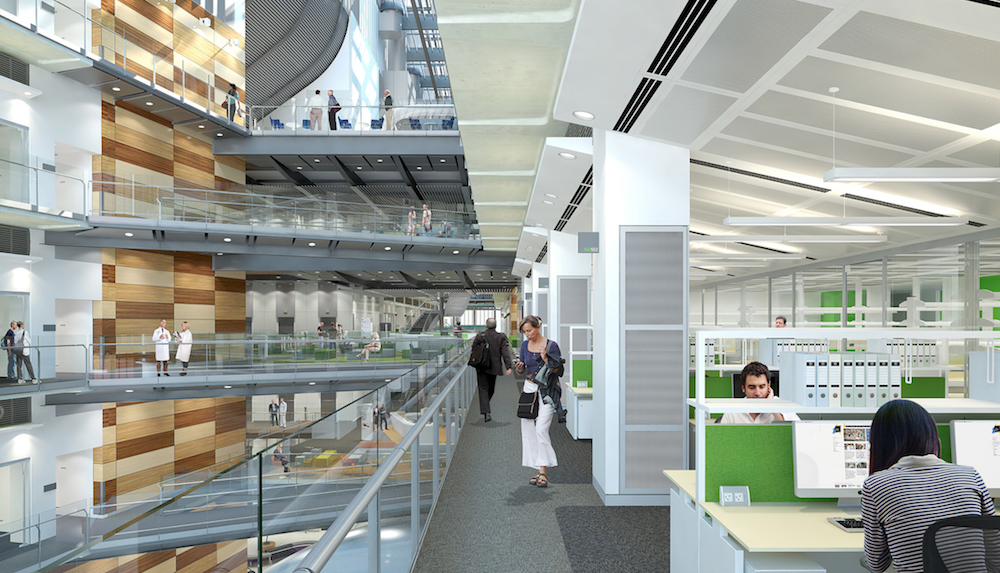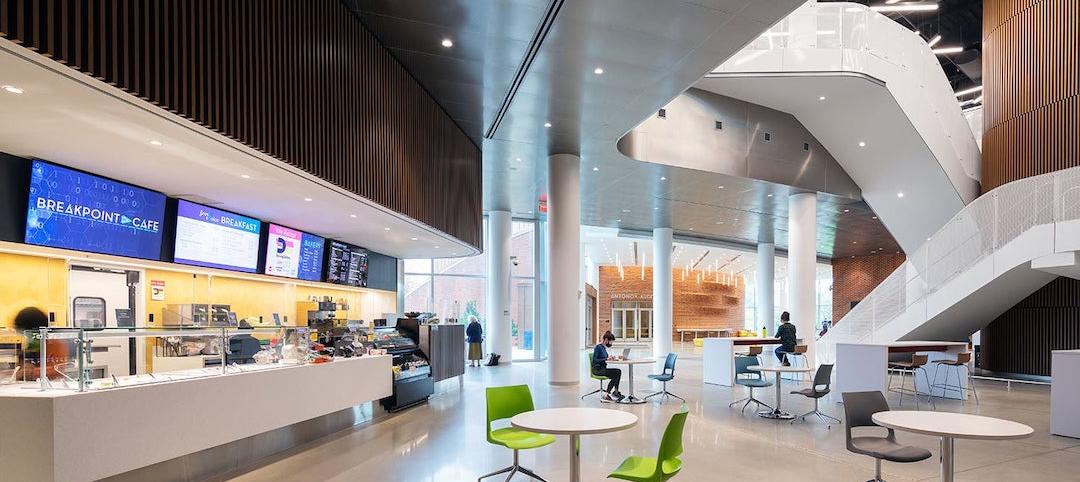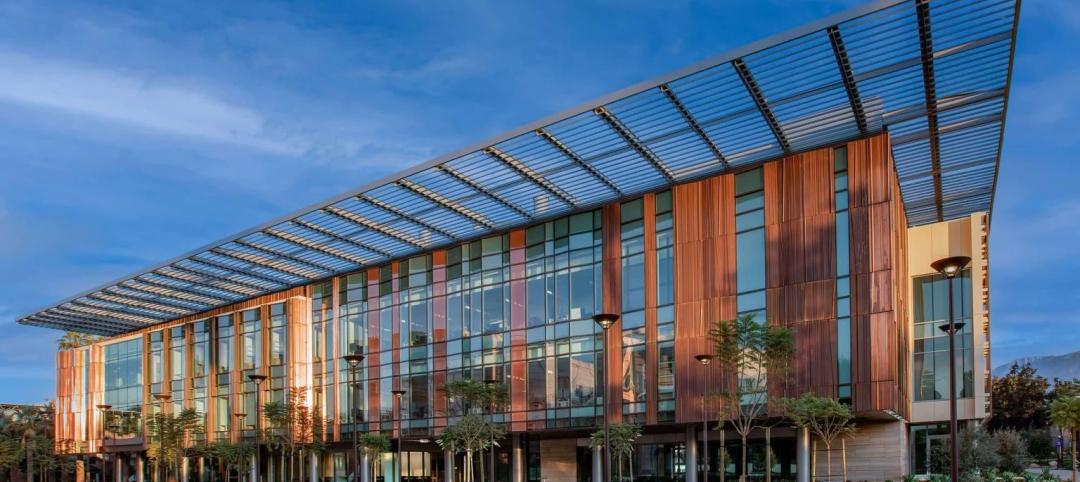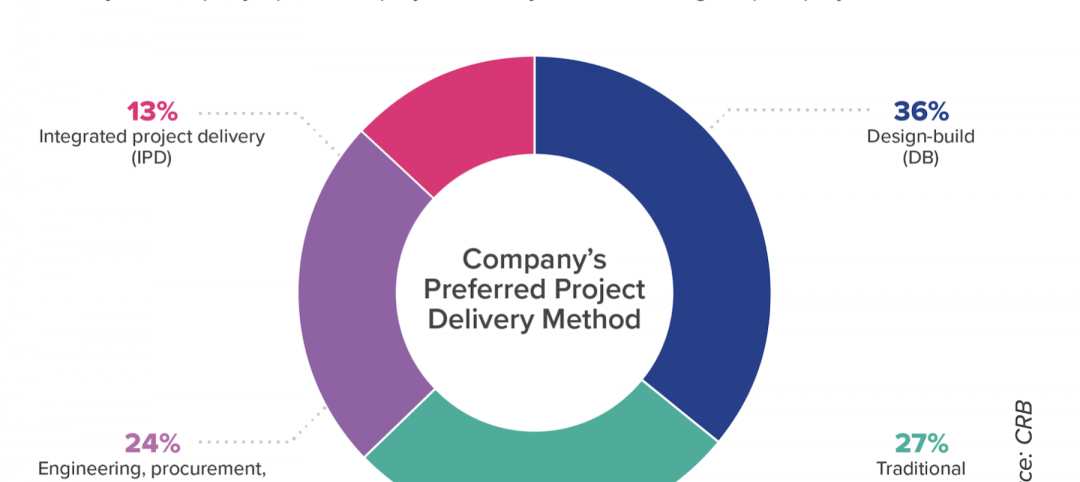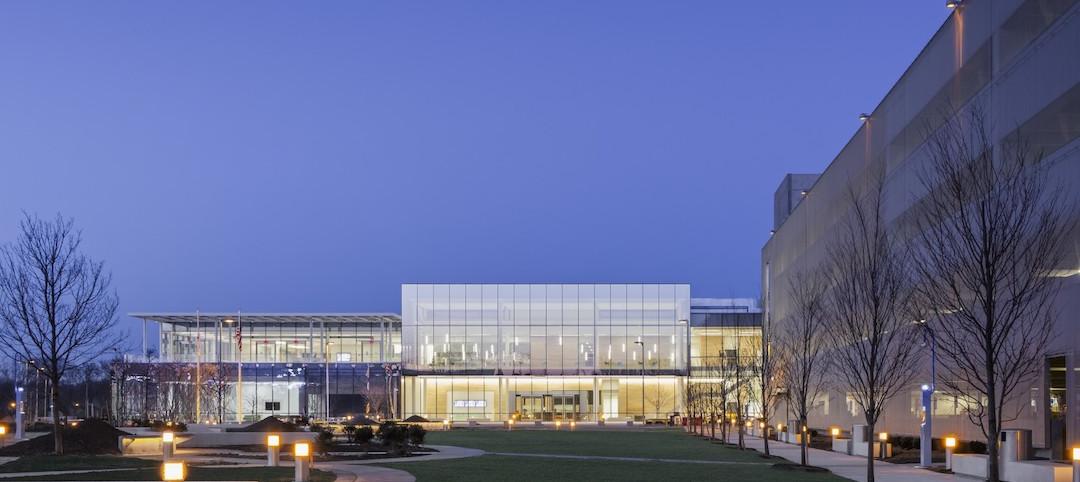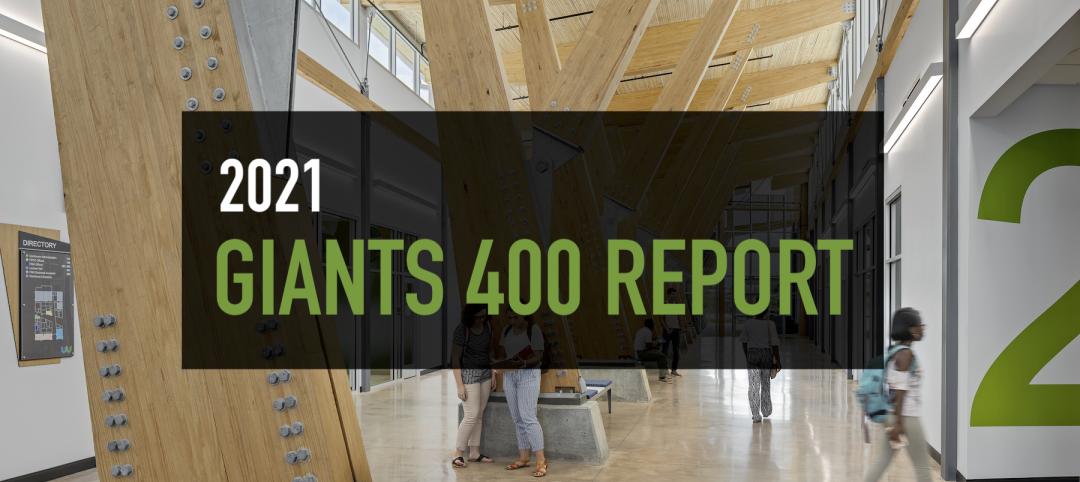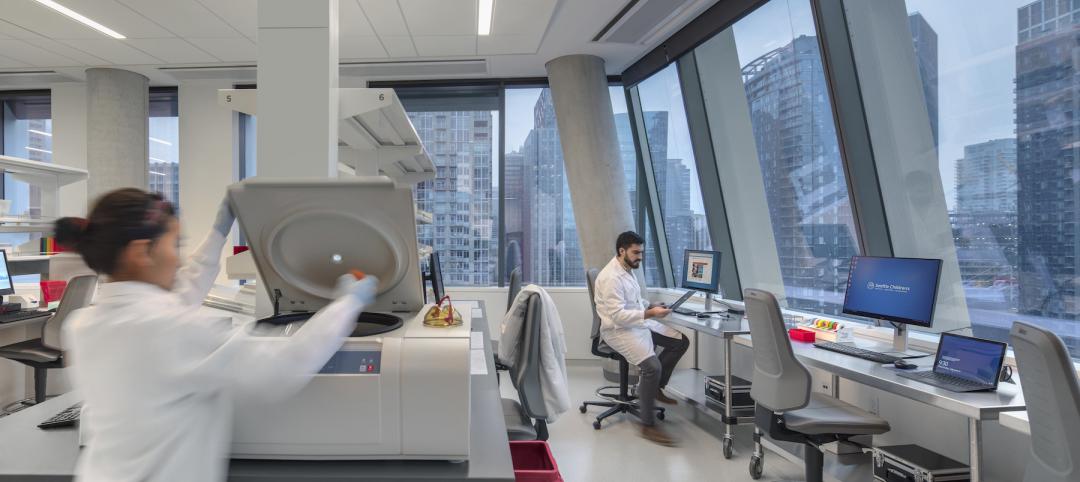HOK worked on the Francis Crick Institute for more than seven years. The firm was as much a mediator as it was the project’s architect and designer.
The 980,000-sf, $931 million facility is the result of a unique financing mechanism that brought together three of the U.K.’s heaviest funders of biomedical research—the Medical Research Council, Cancer Research UK, and the Wellcome Trust—and three leading universities—University College London, Imperial College London, and King’s College London.
“The Crick,” as it’s known, is organized into four “laboratory neighborhoods” that encourage multidisciplinary interaction among its 1,500 scientists. Offices and labs have floor-to-ceiling glazing. The facility is designed around two atria that allow visibility throughout the building and between floors.
David King, RIBA, Technical Principal for HOK’s London office, provides insider details about what it took to get the Francis Crick Institute from launch to completion.
According to King, the six partners that funded the institute had “different protocols and procedures, often different funding methods, and organizational structures.”
To build consensus about key expectations and outcomes, HOK established 12 main user groups, which HOK encouraged to focus on how the building’s operations would work in the future, and how best practices from other research facilities around the world could be incorporated.
“The fundamental challenge was whether the building would become home to six institutions sharing common facilities, or one institution made up of several constituents. Happily, it is the latter,” says King.
HOK also had to deal with outside forces that could have tied the project in knots. “The Commission for Architecture and the Built Environment, the Mayor of London, and Camden Council had widely differing views on how the building should look,” recalls King. Camden Council initially opposed the proposed development altogether, preferring to use the site for social housing.
PLP Architecture was appointed to the project because of its previous work with Camden’s planning department. “We worked with PLP to focus on the building’s envelope and outward expression in order to shape the building into a civic landmark that Camden would approve,” said King.
The solution: One-third of the structure is below ground level, and its curved roof design is meant to create a more inviting perspective for the surrounding community.
Over the course of the project, HOK retained at least seven other sub-consultants for their expertise in such areas as acoustics (Cole Jarman), lighting (Porkorny Lichtarchitektur), biological resource facilities (Boswell Mitchell & Johnson), shielding (VitaTech), building maintenance and systems access (REEF Associates), cladding (EPPAG), and computer graphics imagery (Glowfrog).
Related Stories
University Buildings | Jan 11, 2022
Designing for health sciences education: supporting student well-being
While student and faculty health and well-being should be a top priority in all spaces within educational facilities, this article will highlight some key considerations.
Giants 400 | Dec 31, 2021
2021 Science and Technology Sector Giants: Top architecture, engineering, and construction firms in the U.S. S+T facilities sector
HDR, CRB, Jacobs, Skanska USA, and Whiting-Turner Contracting Co. top the rankings of the nation's largest science and technology (S+T) sector architecture, engineering, and construction firms, as reported in the 2021 Giants 400 Report.
Laboratories | Nov 18, 2021
Tapping into the life sciences building boom
Paul Ferro of Form4 Architecture discusses how developers are pivoting to the life sciences sector, and what that means for construction and adaptive reuse.
2021 Building Team Awards | Nov 17, 2021
Caltech's new neuroscience building unites scientists, engineers to master the human brain
The Tianqiao and Chrissy Chen Institute for Neuroscience at the California Institute of Technology in Pasadena wins a Gold Award in BD+C's 2021 Building Team Awards.
Laboratories | Nov 17, 2021
New report finds a biopharma industry being reshaped by disruption
Industry respondents to CRB’s survey weigh in on project delivery, digitization, and off-site manufacturing for life sciences construction.
Laboratories | Oct 14, 2021
‘Next-generation’ Quest Diagnostics lab unveiled in New Jersey
Mark Cavagnero Associates designed the project.
Laboratories | Aug 31, 2021
Pandemic puts science and technology facilities at center stage
Expanding demand for labs and life science space is spurring new construction and improvements in existing buildings.
Giants 400 | Aug 30, 2021
2021 Giants 400 Report: Ranking the largest architecture, engineering, and construction firms in the U.S.
The 2021 Giants 400 Report includes more than 130 rankings across 25 building sectors and specialty categories.
Laboratories | Aug 30, 2021
Science in the sky: Designing high-rise research labs
Recognizing the inherent socioeconomic and environmental benefits of high-density design, research corporations have boldly embraced high-rise research labs.
Laboratories | Aug 25, 2021
Lab design strategies for renovations and adaptive reuse
Lab design experts in HOK’s Science + Technology group outline the challenges organizations must understand before renovating a lab or converting an existing building into research space.


